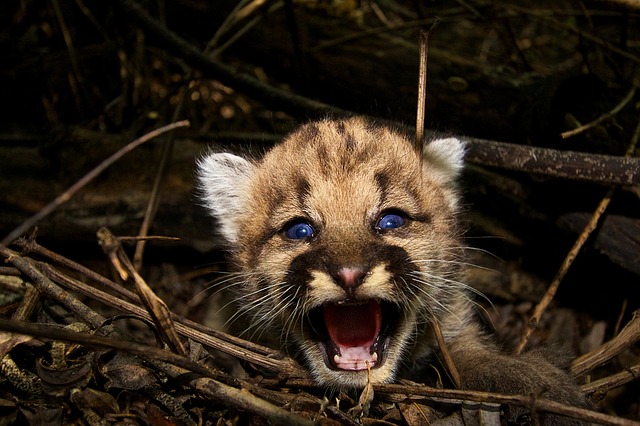The mountain lions of Greater Los Angeles could become extinct in the next 50 years if modern development continues to isolate them in their natural habitat, wildlife ecologists from the National Park Service and researchers at the University of California warn.
There are around 15 mountain lions, or pumas, in the Santa Monica Mountains that are cut off from the rest of their kind by man-made structures such as freeways and tall buildings. Since no new pumas can enter, and the ones inside are hemmed in, breeding has remained very limited, and the gene pool has not diversified. Without intervention, these cats are vulnerable to extinction, reports the Los Angeles Times.
John Benson, a wildlife ecologist at the UCLA La Kretz Center for California Conservation Science, and a team of researchers examined 13 years of genetic and tracking data gathered by the National Park Service to check on the survival odds of mountain lions in the Santa Monica mountain range.
The cats inhabit around 150,000 acres closed in by the 101 and 405 freeways to the north and east, and farming fields to the west.
The good news is that the researchers found that the mountain lion population is stable and shows a good potential for growth in the next 25 years. But the long-term predicament for the animals is less certain.
The pumas are at a 15% to 22% risk of going extinct because they are a small group and are isolated geographically.
Unlike other animal species with large populations, a single death among the 15 mountain lions could mean catastrophic consequences. Among the Santa Monica pack, two male lions are king of breeding.
Seth Riley, one of the study’s co-authors and a wildlife ecologist with the National Park Service, says, “If it just so happens one month that one gets hit by a car, and one dies of rodenticide poisoning, then all of a sudden you’re out of males.” Structures make it highly improbable for other males to enter the Santa Monica region.
Inbreeding also poses a threat, as the pumas have resorted to mating with close kin. This, in turn, courts genetic abnormalities that might affect the cats’ reproductive health and survival – a situation called inbreeding depression. Researchers factored this into their calculations and found that the risk of extinction jumped to 99.7%.
The mountain lions have the lowest recorded genetic diversity among puma populations in the country, aside from panthers in Florida. Scientists and ecologists now have the opportunity to address the biggest threat to the animals’ survival in freeing them from isolation.
According to the National Park Service, which has been keeping a close watch on the pumas, only one new member had joined the pack since 2002.
A wildlife corridor is necessary to allow the mountain lions and any other sort of wildlife to exit and return to the Santa Monica mountains, according to the researchers. Caltrans submitted a proposal for a 165-foot-wide, 200-foot-long bridge over the 101 Freeway in Agoura Hills that would connect the Santa Monica Mountains with the Santa Susana Mountains and Simi Hills.
Ecologists say that if one new cat entered the Santa Monica population every few years, it would be enough to halt inbreeding depression and raise the mountain lions’ chances of survival. Riley says, “It doesn’t have to be all that much. You don’t need a whole parade of lions coming across the freeway.”
Benson adds that a crossing would mean helping not just the pumas, but all other animals in the area. “Any animals that may need a way to cross the freeway can do so, and we can help the whole ecosystem instead of just a single species.”
The study was published in the Proceedings of the Royal Society B.
























